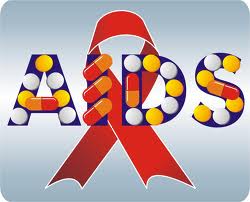Guide on AIDS and its Symptoms
March 22, 2011 by: adminAIDS is stands for Acquired Immuno Deficiency Syndrome. AIDS is caused by HIV virus which attacks on immune system cells. The most advanced stage of HIV infection is known as AIDS.The HIV virus damages that cells which is cells as CD4+ cells and then patient body becomes more weaker to infections. There is no any specific cure for AIDS, by using the medical treatment it can slow down the rate of HIV which affects on immune system.

Actually the symptoms of AIDS are depends upon the phase of infection.After getting HIV infection, most of people does not face any symptoms.For several days some people have flu like illness which may include the signs such as headache, fever, rash, swollen lymph gland and sore throat.
The person remains free with symptoms for few months or years. During that period, the HIV virus continue to multiply and the cells of the immune system destroyed by infecting HIV virus infects. A person with HIV, who’s immune systems becomes very weak, should develop the symptoms such as weight loss, skin rashes, lack of energy, short term memory loss , frequent fever etc.
Most of the people are common with opportunistic infections, in most of conditions these infections are caused by virus, parasites, bacteria, fungi and also other organisms. Some common symptoms may include pain swallowing , cough and shortness of breath , vision loss, confusion and forgetfulness, seizures and lack of cor-ordination, nausea, coma, weight loss and extreme fatigue, fever etc.
